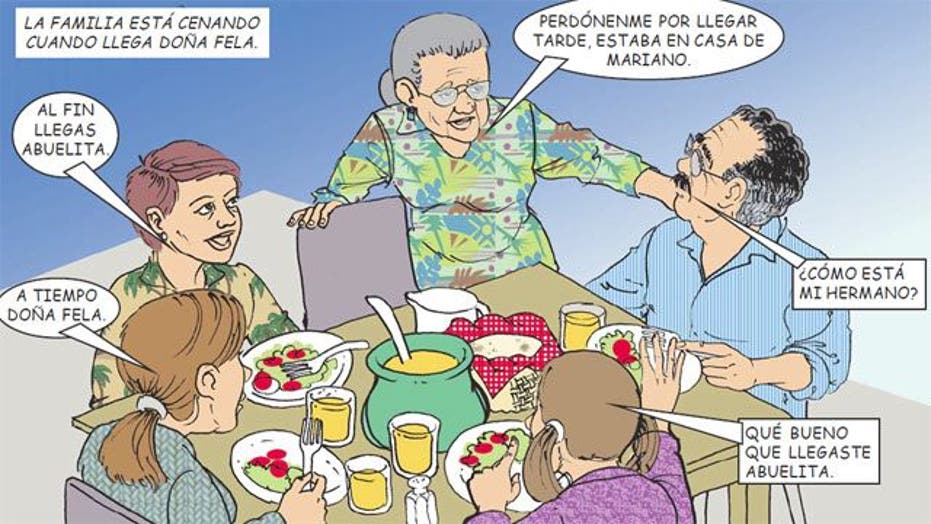An increasing number of Latino churches are using their influence in the community to save lives by uniting health with spiritual salvation.
Latinos have the highest rate of uninsurance in the country and present increased rates of diseases that can be mitigated through prevention, according to statistics from the U.S. Department of Health and Human Services. They are more than twice as likely than non-Hispanic whites to be diagnosed with diabetes, and 10 percent more likely to have heart disease.
Hispanic women are more than twice as likely as whites to be diagnosed with cervical cancer, but less likely to get screened.
Though screenings and other preventative measures would go a long way to lowering some health burdens, experts say Latinos have significant hurdles to overcome before they would even consider approaching mainstream medical outlets. Spending money on healthcare is simply not a priority when low-income families are struggling to pay for shelter or food.
In addition, undocumented immigrants fear repercussions of health visits.
- When Health Becomes a Soap Opera
- Paella Without the Rice: Healthy and Tasty
- Facebook’s Timeline: It’ll Change Your (Virtual) Life
- “Soy Tu Dueña” A Telenovela Hit
- How Celebrities Stay in Shape
- Texas Makes Telenovelas
- Opinion: Is Debt Deal a Happy Ending to the Novela?
- On Soap Operas, Immigration Takes a Place Alongside Amnesia and Evil Twins
- Using the Latino Love of Soap Operas to Convey Health Information
“People have fear because sometimes participants think if they go to a hospital they will have problems with immigration, but they know churches are more safe and churches will protect their people,” said Norma Palencia, health project coordinator of the Jubilee Consortium.
Health advocates have desperately sought to reach the Latino population, which they say is disenfranchised from healthcare because of language barriers, cost and, to some degree, cultural barriers. As more studies show that programs that use churches can be more effective than traditional routes of health communication, including messages straight from physicians, there is some momentum to increase these programs.
“More people are catching on to the importance of churches and health,” explained Melinda Cordero, associate director of Visión y Compromiso, a health advocacy group that promotes the use of peer health workers called promotoras. “It’s a strong message that churches can relay to parishioners.”
The faith-based model has been used in African-American churches for decades. The success of this medium lies in the fact that the focus is on changing behavior, rather than simply dispensing advice.
Using religious themes of patience, virtue and kindness, messages usually dispensed by doctors during sporadic health exams can instead be delivered by pastors or designated health workers.
Palencia organizes health outreach efforts sponsored by the Episcopal church in Los Angeles. The nondenominational programs she develops target low-income Hispanic neighborhoods there and focus primarily on issues that involve obesity, such as high cholesterol and diabetes.
A major component of her programs is one-on-one counseling.
“It’s very important to talk with people, and doctors don’t have time to do that,” Palencia said. “When I talk with participants I know what is the most important thing in their life and I know how to make them see their health through that.”
The programs offered by Palencia's group are similar to what many faith-based health programs offer. These include health screenings and fitness classes but many focus on one-on-one counseling by a health advisor who is not necessarily a clergyman.
In some churches, health messages can even work their way into the pulpit, said Héctor Balcazar, the Regional Dean of Public Health at the University of Texas Health Science Center at Houston.
“There can be discussion of the spiritual element to try to develop virtues that can be tied to health,” he said.
Balcazar has worked with a number of churches on behalf of the Center for Disease Control to reduce hypertension. He found that tapping into religious virtues such as honesty, gratitude, peace and love were powerful messages for Latinos.
He used them as the basis for pamphlets that he thought would speak to the community more profoundly than other options available in local hospitals and clinics.
“When [health professionals] enter communities and have dialogues that elicit questions, without thinking we have all the answers, you are more likely to get results,” Balcazar said.
Soni Sangha is a reporter based in New York City.
Follow us on twitter.com/foxnewslatino
Like us at facebook.com/foxnewslatino

